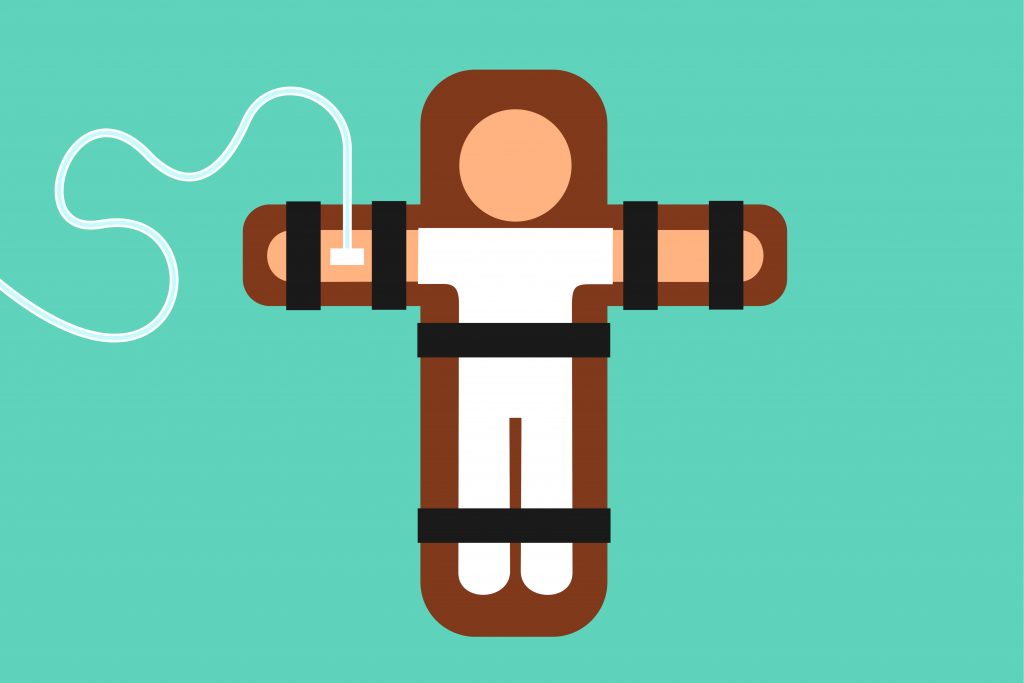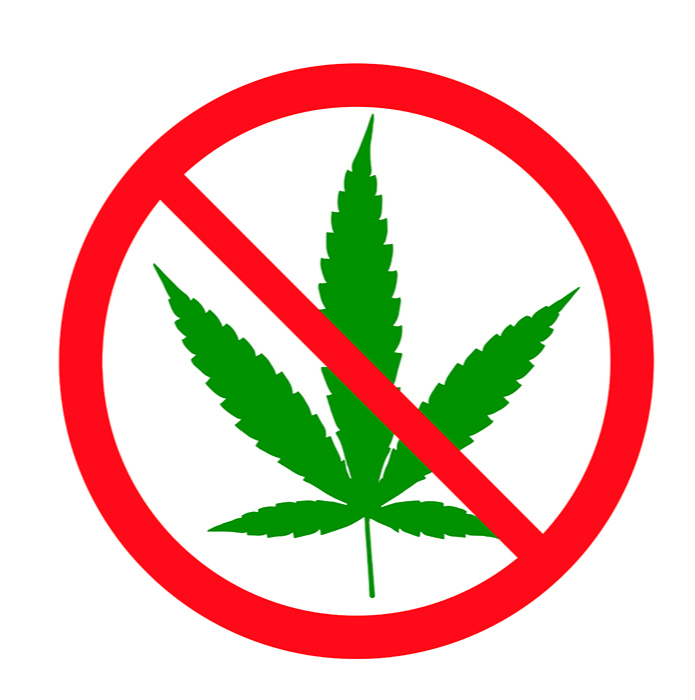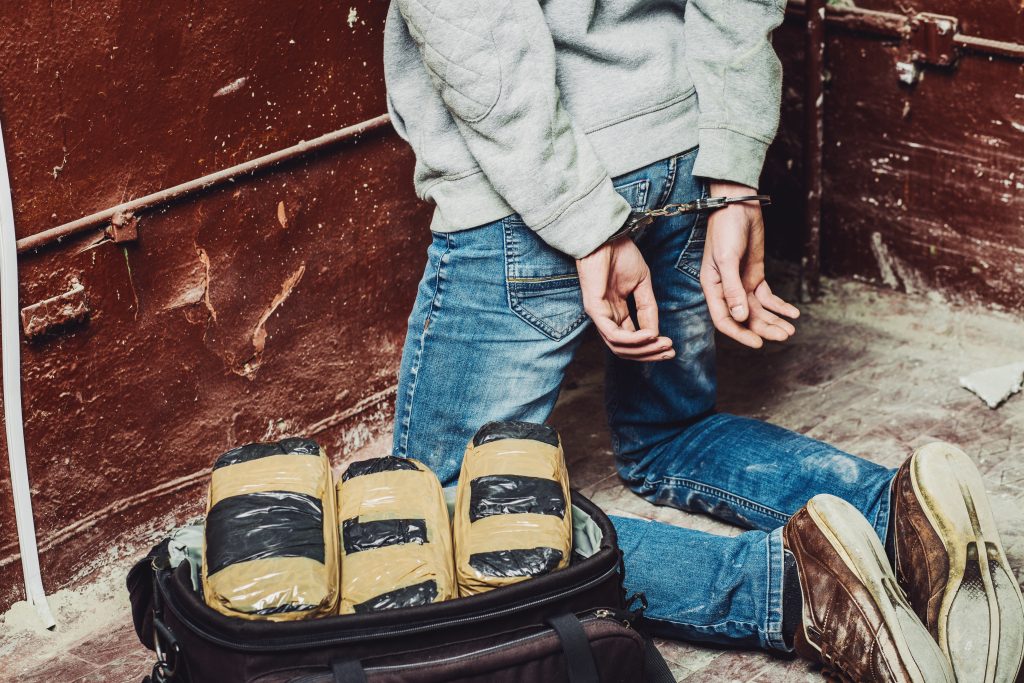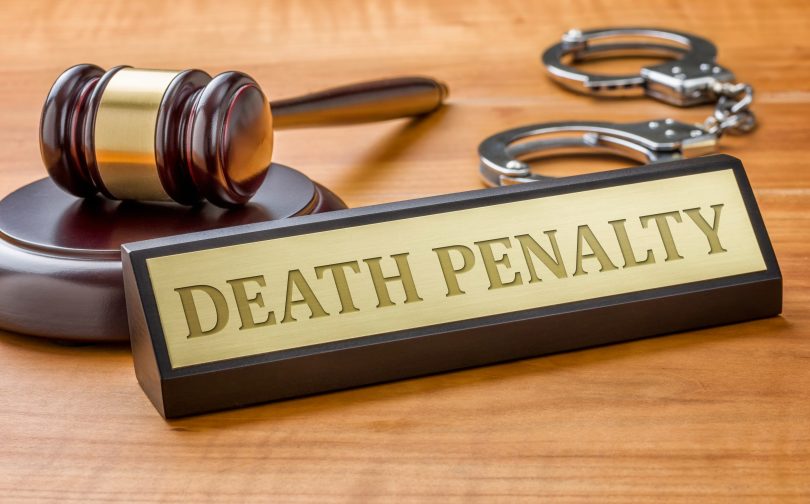It’s almost hard to believe that as the UN voted on recommendations to globally open the legality of cannabis, that some countries are still so against it that they’ll kill you for crimes related to it. Yup, it might be 2020, but you can still receive the death penalty for cannabis crimes in many different places.
The first thing to understand about the death penalty for cannabis is that there are different kinds of cannabis crimes, and just because a country employs the death sentence, it doesn’t mean it’s applicable to all crimes involving cannabis. Some countries will only enforce such a law for traffickers, others are more hardcore, and will go after actual users with death. While it all seems like a massive overstep in any scenario, here are the places that still give out the death penalty for cannabis crimes.
Ready to finish out your holiday shopping? Check out the best Delta-8 THC deals this year, and make everyone happy this holiday season.
China
China is at the top of pretty much any list when it comes to the use of capital punishment. Though the country didn’t begin handing out sentences for cannabis use until the 1980’s, it certainly went from 0 to 100 pretty fast. In China, being caught with just five kilograms can be enough to get the death penalty, though some publications put the amount at 10 kilograms of hash or 150 kilograms of marijuana. Lesser punishments involve prison sentences of five years to life, with a fine of up to 1,000 yuan. Sale and supply crimes will get you a death sentence that much faster, even with smaller amounts. The problem with China is that information is very rarely released with actual, usable numbers. While there is a strong expectation that China is killing its own people for all kinds of crimes, the specifics are merely speculation.
According to Amnesty International in its 2018 report for the use of the death penalty in the world, there was a 30% decrease in 2018 for known applications of capital punishment. However the report went on to stipulate that China is not involved in these numbers as it has never released this information, making the actual death – and the percentage it has increased or decreased, unknown. It stated: “As in previous years, the global totals do not include the thousands of executions that Amnesty International believed were carried out in China, where data on capital punishment is classified as a state secret.”

So, the number of deaths could be in the hundreds, or thousands, or even tens-of-thousands, but we have no way of knowing. What we do know is China doesn’t have a problem killing travelers in its country. In August of this year, China sentenced its fourth Canadian to death on drug smuggling charges. This highlighting an escalating tension between the two countries that began with Canada’s arrest of Meng Wanzhou in late 2018. Wanzhou is the daughter of Huawei’s founder and an executive of the company. The request actually came from the US, stemming from fraud charges related to Iran. It is thought by some that the recent death sentences leveraged on Canadian citizens Ye Jianhui; Xu Weihong, who was sentenced to death a day before Jianhui; Robert Schellenberg, a convicted Canadian smuggler; and Fan Wei, who was given the death penalty in April of 2019, are a form of retaliation for Wanzhou.
China’s illegalization and harsh punishments for cannabis are similar to India in the sense that China is home to Traditional Chinese Medicine (TCM), just like India is home to Ayurvedic medicine. Both are thousands-of-years old natural medicine traditions that employ the use of cannabis. While it’s not often spoken about these days – probably because China is good at suppressing information it doesn’t want out there, cannabis is considered one of 50 fundamental herbs, which goes by the name ‘da ma’. This has not helped with acceptance of the plant today, nor has it inspired China to legalize cannabis for medicinal use.
Singapore
Another country known for its liberal use of the death penalty for cannabis crimes is Singapore. This shouldn’t come as a huge shock to anyone who remembers young Michael Fay being caned in Singapore as a punishment for minor vandalism charges back in 1994. Whether the numbers released by Singapore’s government are accurate is a different story, but they are at least released through the Singapore Prison Service which publishes execution numbers for each year. In 2019, it stated there were four hangings, two for drug-related charges, and two for murder. In 2018 there were 13, 11 for drug offences, and two for murder.
The country’s drug policy is carried out through the Misuse of Drugs Act, which puts the burden of proof on the individual rather than the government. Being found with a large amount of drugs is automatically considered a trafficking offense, and if illegal drugs are found in the home or car of a person, it is deemed theirs automatically, even if it is not. In terms of cannabis, the amount at which it is termed trafficking is 10 grams of hash, or 15 grams of cannabis. Schedule two of the Misuse of Drugs Act allows for the death penalty for cannabis if the offender has 200 grams of hash, or 500 grams of flower.
Iran
Iran is yet another country known for its strict laws, and use of the death penalty for cannabis crimes. Possession of 50 kilograms can still get a person a death sentence, although Iran has technically loosened its laws to be a bit less harsh. It was reported in 2018 that Iran got rid of the death penalty for some drug charges, creating a need to review all death row cases. It was estimated at the time that as many as 5,000 lives could be spared because of the update. It used to be that 30 grams of cocaine would incur the death penalty, and now the amount has been raised to two kilograms. Both opium and marijuana were increased to 50 kilograms. It was approximated that of the 5,000 people sitting on death row at the time of the legal update, 90% were first-time offenders between the ages of 20-30.
What was just mentioned is merely for use. If a person is caught trafficking over five kilograms of cannabis in Iran, they are likely to get a death sentence, as well as having all property taken away, save for what is necessary for the offender’s family to survive on. This means the family of offenders pay for the crimes of those who actually perpetrate them. Cultivation is illegal in Iran, and offenders caught for the fourth time are subject to a death penalty. Strangely enough, if the plants are not intended for narcotic use, cultivation is tolerated, although how this is determined is less defined.

India
India truly seems out of place on the list. Like China, it has a longstanding medical tradition – Ayurvedic medicine – which employs the use of cannabis, and yet this history hasn’t helped with legalization measures. India does stand apart from China in that it is slowly loosening policies, or at least giving individual states the ability to set their own laws. Some states even instituted medicinal cannabis policies.
India isn’t generally known as having a high level of violence, unlike other entries on this list. But this hasn’t stopped the country from employing the death penalty for cannabis crimes. And, it’s a country that will use the death sentence on non-trafficking crimes. In India, if an offender is caught with 20 kilograms of marijuana or hash with a THC content of 500 grams, they can incur the death penalty. It used to be that such a crime automatically meant a death penalty, but this was struck down in 2011 by the Bombay High Court, which knocked it down from a requirement to an option. Since possession and supply crimes actually have the same penalties, suppliers caught with 20 kilograms can be subject to the death penalty. When it comes to actual trafficking, this is considered just as severe. The maximum sentence of a 100,000-200,000 rupee fine is the same as the top punishment for possession and supply crimes, and trafficking also can incur the death penalty under certain circumstances.
The rest
The examples above are not the only countries to employ the death sentence for cannabis crimes. Saudi Arabia is another hardcore country that doesn’t allow for much. Cannabis is illegal in the country in all forms. The country beheaded approximately 60 people in 2017 for drug-related crimes, with some of them being for cannabis. This amount equals about 40% of beheadings for that year, which was up from about 16% the year before according to Amnesty International. What it takes exactly to incur the death penalty in Saudi Arabia is hard to say, but it seems first time offenders and small-time users are punished with minor jail sentences, or lashings, with beheadings saved for repeat offenders who deal with large amounts.
Malaysia is known as one of the toughest countries on drug possessors and traffickers. Malaysian law makes the assumption that if a person has 200 grams or more that they are trafficking. Under the Malaysian Law Dangerous Drugs Act 1952, this is punishable by death. In 2018, upon enough public outrage over these killings, the government began talks to legalize cannabis for medicinal use, which is quite a turnaround from capital punishment.
The case that caused this disruption regarded a man, Muhammad Lukman, who was sentenced to death for selling cannabis oil to sick people. After his sentencing, over 10,000 residents signed a petition to have his case reviewed, resulting in the government announcing it would remove the death sentence for drug charges and 31 other crimes. Talking is not the same as doing, however, and it seems that talk of removing the death penalty hasn’t resulted in action yet. As of May 2020, the Malaysian Court of Appeals upheld Muhammad Lukman’s conviction, stating that there was no evidence that cannabis could be beneficial for cancer patients.
In fact, to give an idea of how little the proclamation to abolish the death penalty meant in 2018, another man, R Siva Raman, was sentenced for drug trafficking on September 30th 2020. And this for having 208 grams only. In general, Malaysia is not a country that releases statistics on capital punishment for drug charges, so specifics are hard to come by.

Vietnam, much like China and Malaysia, isn’t really big on releasing data on executions. It is therefore impossible to know how many death sentences for cannabis, or drugs in general, were handed down. The UN Human Rights Committee has repeatedly asked for this data, but the Supreme People’s Court has repeatedly sidestepped the request. The only information to go on comes from media reports which state Vietnam gave out at least 75 death sentences in 2019, 74 for drug offenses!
Then there’s Egypt, which approved death sentences for drug traffickers as late as 2019, which is odd since the general trajectory has been to get rid of capital punishment, not institute it. In Egypt, sale and supply crimes can be met with the death penalty, although possession of small amounts can still incur severe punishments as well.
Indonesia technically allows the death penalty for traffickers. This can be imposed if the offender has over one kilogram of raw drug materials, or five kilograms of processed drugs. Though Indonesia has plenty of people sitting on death row for drug trafficking, there have been no executions since 2016, likely because of building public outrage against them.
Myanmar gets added to the list as well. Though it’s not a country that comes up often when discussing death sentences for cannabis crimes, it came into the spotlight in early 2019 when a US citizen and two locals were sentenced to possible death for violating local drug laws.
Other countries like Bahrain, Kuwait, Pakistan, Bangladesh, Brunei Darussalam, Jordan, Mauritania, Qatar, South Korea, Palestine, Taiwan, Yemen, Cuba, Oman, Sudan, the UAE, and the USA all have the ability for the death sentence, though not all will do so for drugs. Countries like Libya, North Korea, and Syria have death penalties as well, but limited information on how they are used.
Conclusion
There really isn’t much to be said. Be careful where you do drugs. And know the laws of the country you are in if you don’t want the death penalty for cannabis.
Welcome to your #1 location for all cannabis-related news, CBDtesters.co. Stop by daily to keep up-to-date, and sign up to our newsletter so you never miss a beat!
Resources
Cannabis and CBD Oil Use in Muslim Culture
First Ever Virtual CannX 2020 Conference – October 26th, 2020
India’s Bhang Loophole, and the Question of Legalization
Best Way to Detox Cannabis For Drug Tests
Canadian Study Says Cannabis Worse Than Alcohol Best Deal Of The Year – $9.99 Delta 8 THC Vape Cartridges
What is DELTA 8 THC (FAQ: Great resource to learn about DELTA 8THC)
How America’s Foster Care System Weaponizes Cannabis Against Society’s Most Vulnerable
CBD and Halal Culture: Is CBD Oil Halal?
The CBD Flowers Weekly newsletter (your top resource for all things smokable hemp flowers)
The Medical Cannabis Weekly newsletter (International medical cannabis business report)
A Complete Look At Cannabis and Depression
The Delta 8 Weekly Newsletter (All you need to know about Delta 8 thc) and the Best Black Friday Delta 8 THC Deals 2020. Cannabis Election Results –How Green Is Ireland When It Comes to Cannabis Regulation? Iran Still Hands Out Death Sentences for Cannabis
Best Delta-8 Deals, Coupons and Discounts
Thailand is 1st Asian Country to Legalize Medicinal Cannabis and Enter Global Market
Can Using CBD Make You Fail A Drug Test?
Cannabis Falling from the Sky in Israel How America’s Foster Care System Weaponizes Cannabis Against Society’s Most Vulnerable
You’ll Not Want to Get Caught with Cannabis in Japan! Best Hemp Flowers Deals
Medical Cannabis Tourism Rising: Virgin Islands, Jamaica, and Thailand Set to Cash In









